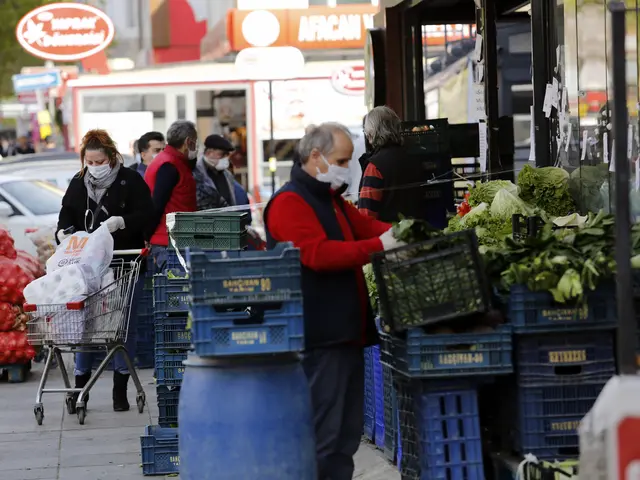Turkey on Thursday introduced new measures to prevent its economy from falling out due to the COVID-19 pandemic.
The bill adopted by the Turkish parliament early Thursday bars employers from laying off workers for three months and it will be extended if deemed necessary.
The legislation also includes tax concessions to businesses and extends the scope of financial aid to employees, envisages the deferral of social security premium payments for three months and provides financial support to public transport services of the municipalities.
The legislation, on the other hand, paves the way for employers to send workers on unpaid leave for up to six months without canceling their contracts.
The economic measures will support people who lost their jobs after March 15.
The government will pay 39.24 Turkish liras (about 5.65 U.S. dollars) per day for three months to workers who were forced to take unpaid leave due to the coronavirus outbreak, Turkey's Labor, Social Services and Family Minister Zehra Zumrut Selcuk said in a tweet.
The ministry will also cover expenses for the elderly and the disabled at private nursing homes and care centers, Selcuk said.
The legislation prohibits companies from inflating prices of goods, or actions which prevent products from reaching consumers.
The government will also postpone rental payments on several types of state-owned immovable properties for three months.
Municipalities and their sub-institutions will also be able to postpone water bills of homes and private companies for three months.
The government will not demand annual advertisement or environment taxes of enterprises that have been forced to close during this period due to measures to fight the coronavirus.
Payments on student loans are also postponed for three months, while those on some agricultural loans are postponed until 2021.
Travel agencies do not need to pay fees to their unions in 2020, while some licenses and permissions of warehouses, commercial ships, associations, cooperatives and unions are extended.
The Treasury will support medical colleges and their subsidiaries if deemed necessary. Turkey has also canceled some local administrative elections.
The Turkish government announced a 100-billion-lira stimulus package on March 18 to support the economy. It included tax postponement and subsidies directed at domestic consumption, such as reducing VAT on certain items and suspension of national insurance payments in many sectors, for six months.
Ankara has adopted strict measures to contain the rapid spread of COVID-19.
Even before the virus hit the Turkish economy, it was already vulnerable and was still trying to recover from the impacts of a currency crisis in 2018 that has already led to a spike in unemployment and a slump in the lira's value.
 简体中文
简体中文

